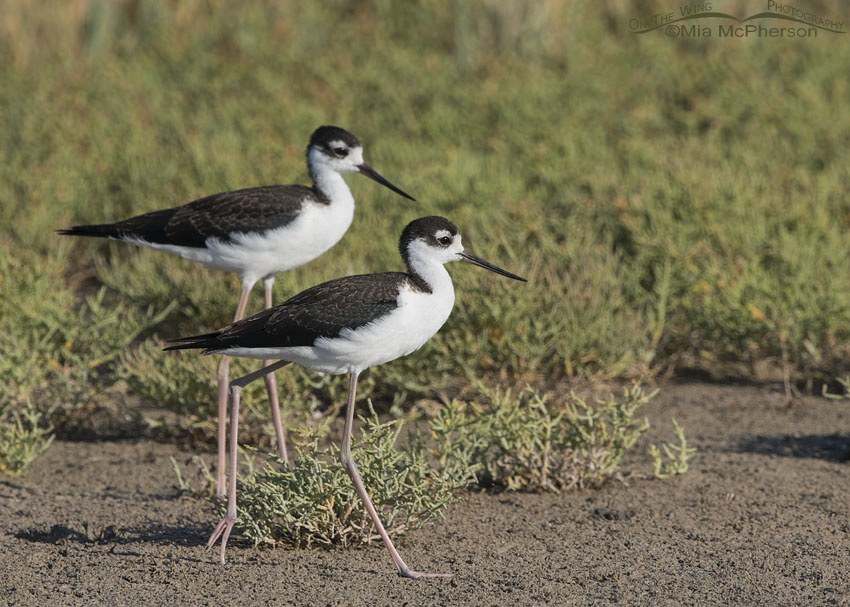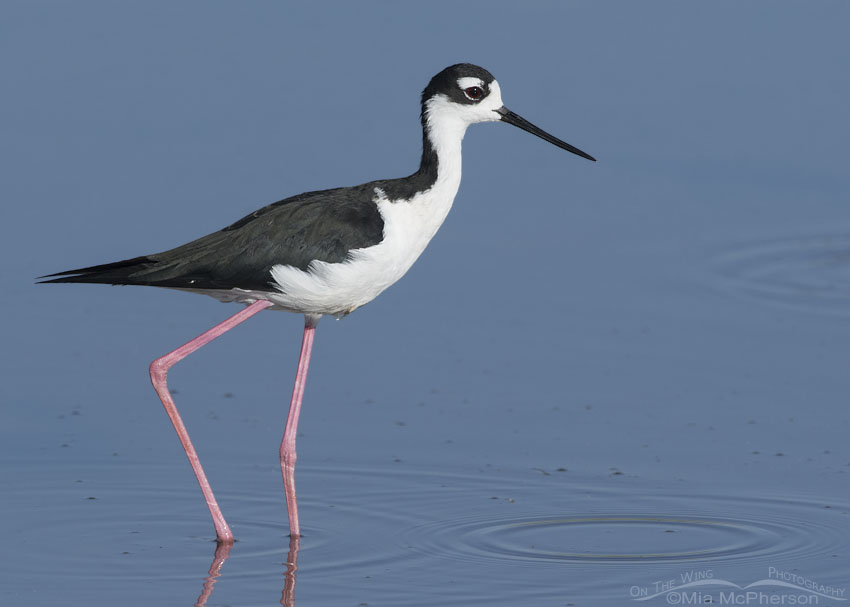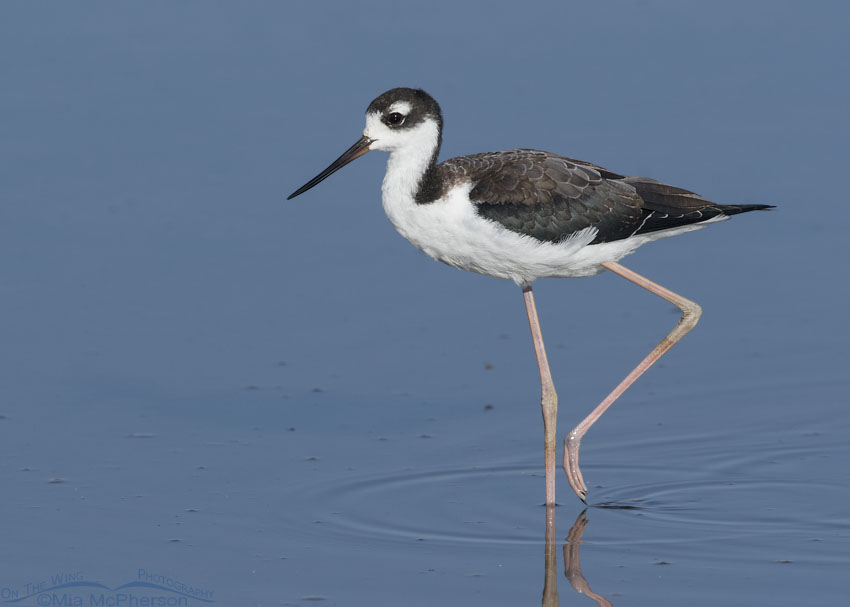 Juvenile Black-necked Stilts in the marsh at Bear River MBR – Nikon D500, f7.1, 1/1250, ISO 400, Nikkor 500mm VR with 1.4x TC, natural light
Juvenile Black-necked Stilts in the marsh at Bear River MBR – Nikon D500, f7.1, 1/1250, ISO 400, Nikkor 500mm VR with 1.4x TC, natural light
Last week when I photographed the White-faced Ibis at Bear River Migratory Bird Refuge I was also able to photograph several stilts near the ibises. Shorebirds were my spark birds as a bird photographer so whenever I have an opportunity to photograph them, I do.
Thousands upon thousands of Black-necked Stilts make the marshes at Bear River Migratory Bird Refuge in northern Utah their home during their breeding season. This year I haven’t seen nearly as many of these black and white long-legged shorebirds than I have in previous years but that may be due to flooding in the marshes early in the spring and a temporary draw down of water in many of the water impoundment units near the peak of what would have been the time they were on their eggs. The stilts may have nested further from the auto tour route than normal.
There were two juvenile stilts foraging in the water and at the edge of the water and at first they seemed a little nervous and moved away but not long after that they settled down and continued looking for food.
 Male Black-necked Stilt keeping an eye on his offspring – Nikon D500, f8, 1/1600, ISO 400, Nikkor 500mm VR with 1.4x TC, natural light
Male Black-necked Stilt keeping an eye on his offspring – Nikon D500, f8, 1/1600, ISO 400, Nikkor 500mm VR with 1.4x TC, natural light
The male Black-necked Stilt kept a watchful eye on his offspring and at one point he chased away a juvenile stilt that flew in. He became quite vocal when the young stilt landed near his young and when it left he settled down and preened.
Listen to a Black-necked Stilt alarm call here.
 Juvenile Black-necked Stilt walking through shallow water – Nikon D500, f8, 1/1250, ISO 400, Nikkor 500mm VR with 1.4x TC, natural light
Juvenile Black-necked Stilt walking through shallow water – Nikon D500, f8, 1/1250, ISO 400, Nikkor 500mm VR with 1.4x TC, natural light
It was interesting to observe this stilt family through my lens and to see how watchful and protective the male was towards his young.
Bird photography and birding has been slow at the refuge lately and I have seen far fewer birds out on the auto tour loop than I have in previous years which has been quite disappointing. I have to wonder if the temporary draw down of water in several of the units doesn’t have some thing to do with that.
Life is good.
Mia
Click here to see more of my Black-necked Stilt photos plus facts and information about this species.


Great images of these beautiful birds. And thanks for making it easy to hear its alarm call.
Nice! The Black-necked Stilts are one of my favorite shorebirds and, for some reason that I can’t verbalize, the plumage of the juveniles is particularly attractive.
The stilts are such an elegant bird. I am always glad to see them featured. Thank you.
Such beautiful & delicate looking shorebirds. Fantastic photos.